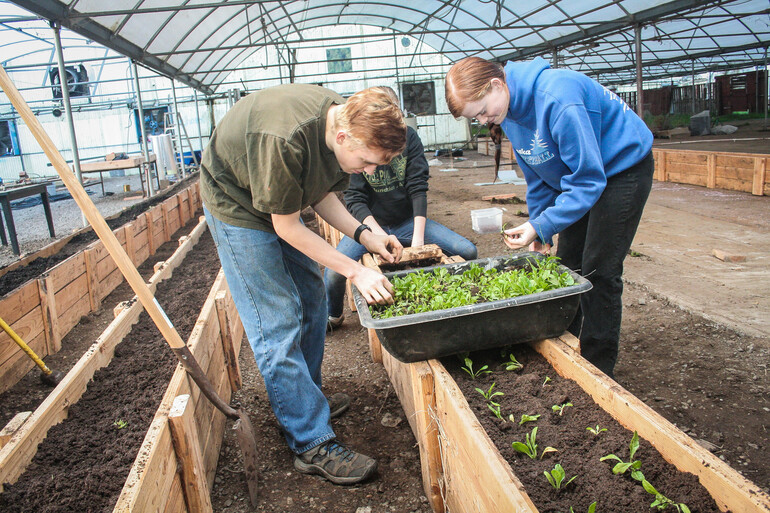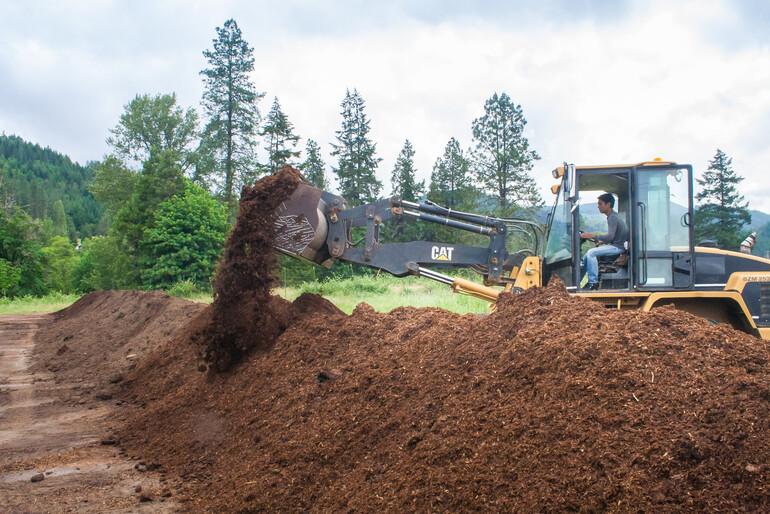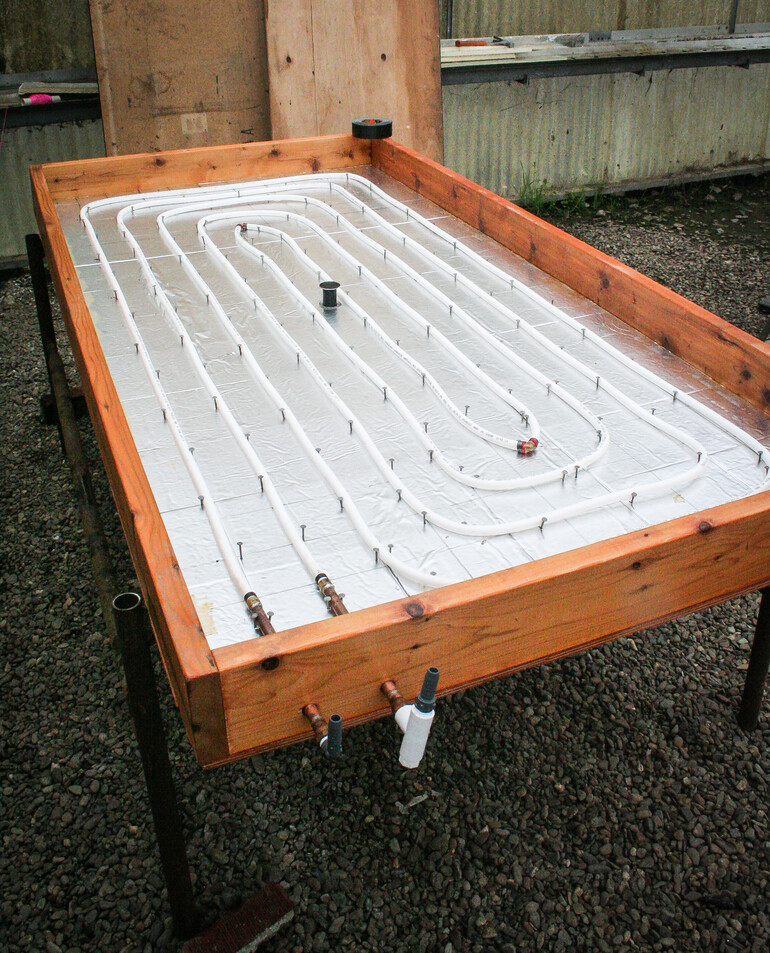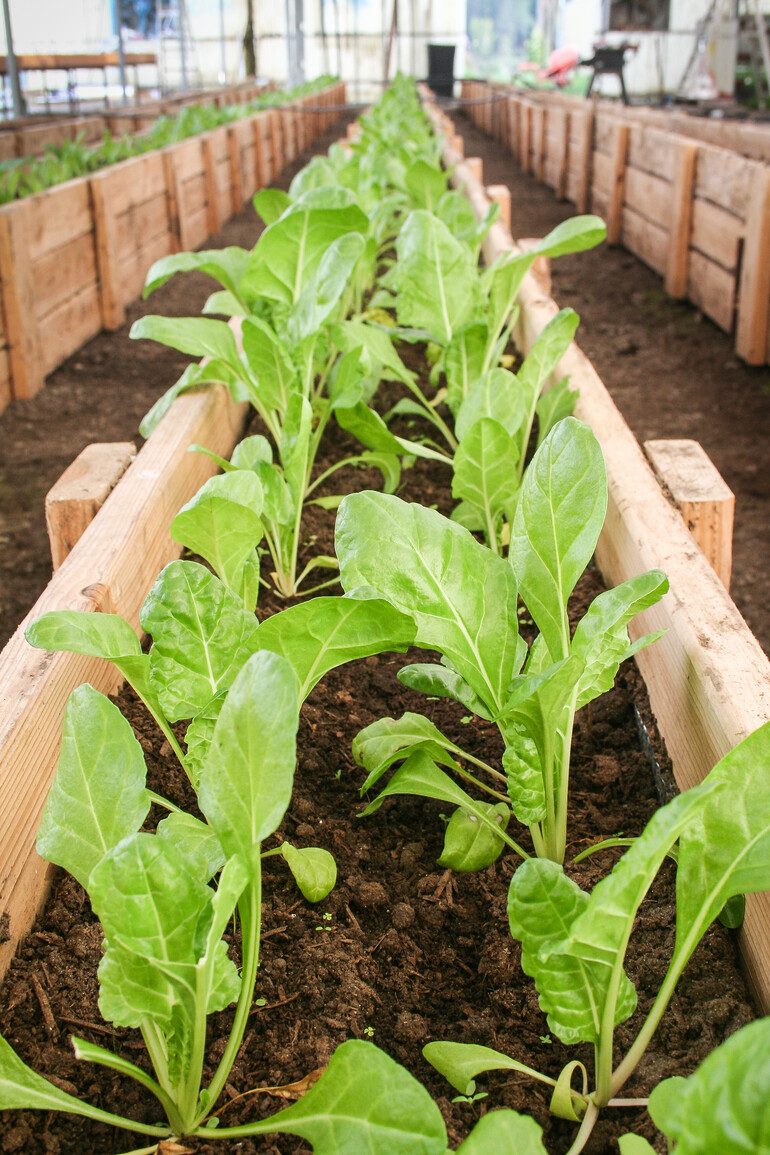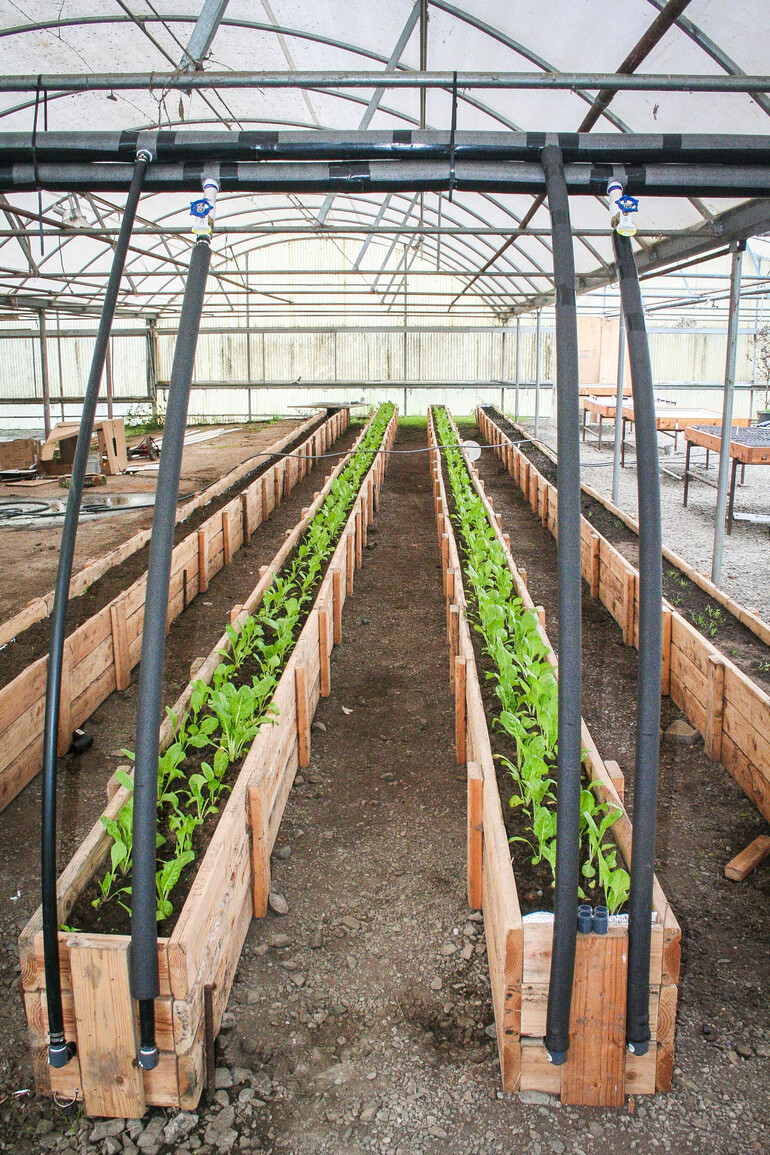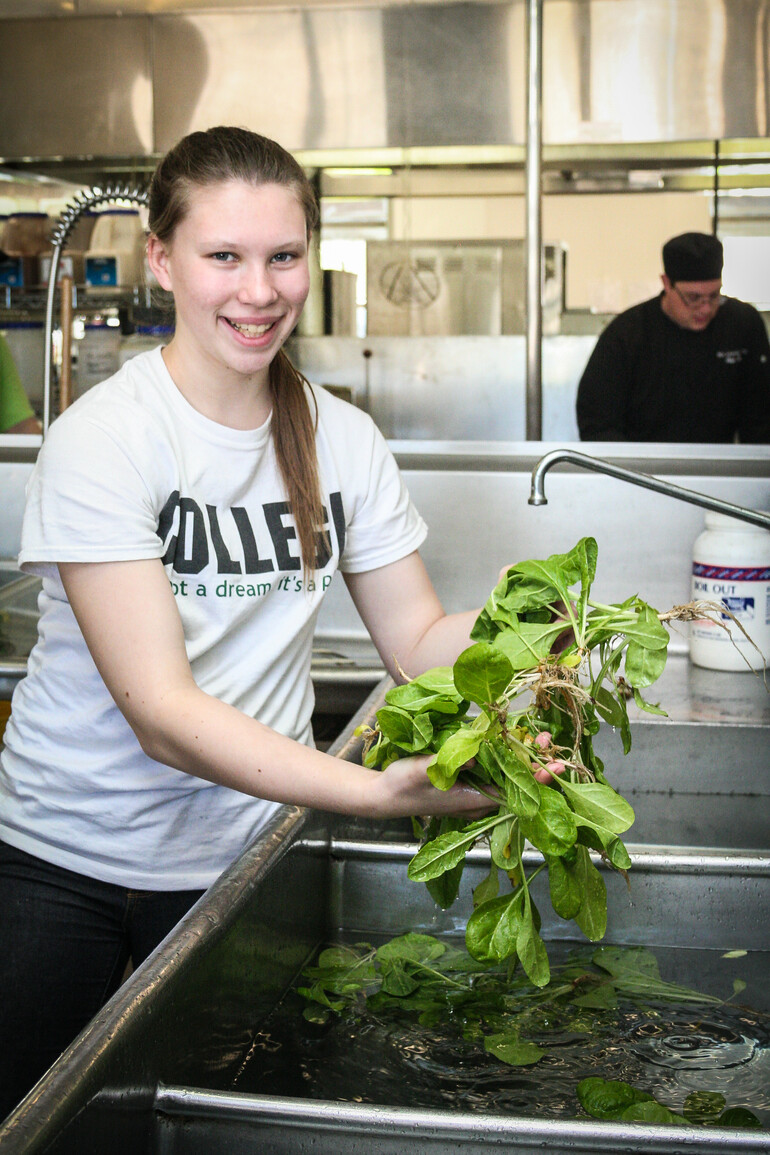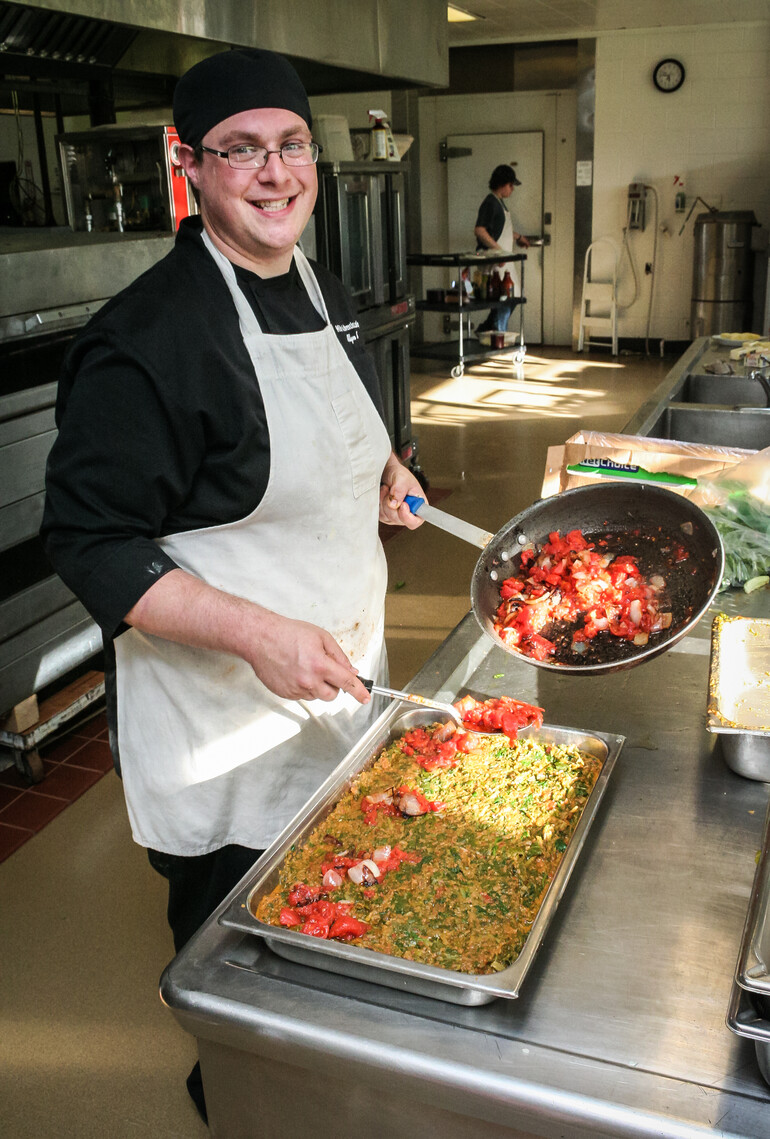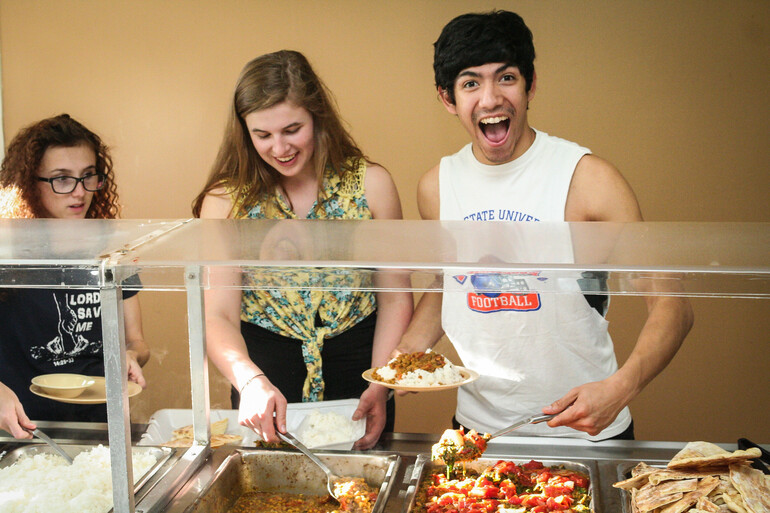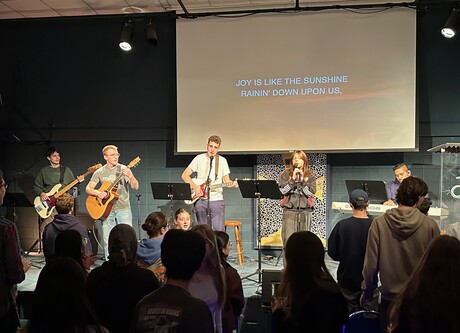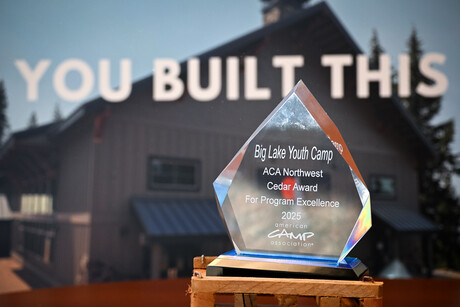An all-organic and non-GMO agriculture program is being developed at Milo Adventist Academy in Days Creek, Ore. The two primary goals of the new program are to give the students an experience cultivating fruits and vegetables and to put good, wholesome food on the table in the cafeteria.
Jeff Birth, agriculture director, and his student workers have labored tirelessly this year to increase the cultivatable land by clearing two acres of wild blackberries to be enclosed inside a new deer fence surrounding the orchard gardens. Birth and his team cleaned up the orchards and applied fertilizer someone donated.
The Stenseth family of Bend, Ore., turned more than 200 pounds of Milo apples into applesauce. Students have enjoyed homemade applesauce all winter in the cafeteria.
The orchard also provides cherries, pears and grapes. Two hundred thornless blackberry starts have been planted.
Birth and his team removed debris from the old greenhouses and built planters and heated propagation tables for germinating seeds. “The table frames are recycled from the old flower-production program years ago," says Birth. "I had the students weld additional supports and then build the new tops complete with hot water tubing for heat. Then I finished by pouring concrete for radiating even heat to the [plant] starts.”
Germination next year will start in January with the heated propagation tables. Broccoli, tomato, pepper, eggplant, snow pea, onion, asparagus, sweet potato, several varieties of greens, cabbage, squash, melon and more plants have been started. They will be transplanted to the outdoor gardens once the fence is finished. One hundred asparagus plants are already growing in the outdoor gardens and will start producing next year.
Ten pounds of Swiss chard and 20 pounds of spinach have been served in the cafeteria so far this spring. Chef Allyn Birth turned the first harvest of Swiss chard into a delicious Indian dish.
The students were excited to eat the first produce from Milo’s own greenhouses. Other crops growing in the greenhouses include green beans, summer squash, romaine lettuce and radishes. In addition, the herb garden behind the cafeteria has been replanted and is providing a variety of fresh herbs to the chefs.
The agriculture department is collaborating with the equestrian center and cafeteria to create compost for the gardens. The barn workers clean the horses’ stalls each day. The used wood shavings and manure are hauled to the compost pile, which is turned every week. The compost bin behind the cafeteria has the added benefit of eliminating food scraps in the dumpsters, so small animals and flies are no longer interested. After a year of turning, about $5,000 worth of rich compost soil has been created, with no weeds.
The program can now make its own wood chips for mulch by running downed tree limbs, twigs and branches through the recently acquired wood chipper. A tree-trimming crew also donated a significant amount of mulch to the school. Cardboard is placed on the ground as a weed barrier, then covered with mulch, eliminating much of the need for weeding.
Ellen White wrote in the book Education, “It would be a great aid in educational work could every school be so situated as to afford the pupils land for cultivation, and access to the fields and woods” (p. 211). Milo students are enjoying the opportunities their rural location affords to follow this counsel.
“The thing I like the most,” says Yulemi Hernandez, a junior, “is working outside, among nature.” She also reports that she has learned “how to follow orders and that even if no one is watching you, you have to work.”
“When I’m up there sometimes in the silence, I think how God has provided a bunch of lessons for our lives,” says Zabdiel Brigido, a senior. “It reminds me about how we should prepare the field, in this case pods and growing beds, for people to get to have the truth. It is a long process, but working step by step we will succeed in planting the the seed in the hearts of people. Also weeding helps me to reflect, think, in my life and how we should be working hard with God´s help to take out all the bad things, constantly purifying our lives because if we let the tares grow, later it’s going to be more difficult to pull them out. It’s inspiring to get to see the plants growing, and I agree with Ellen White when she says that kids should learn, plant and develop a plant, taking care of it.”
Alumnus Dan Santee, ’71, says, “I remember having to get up before daylight and moving irrigation pipe for hours before getting to eat breakfast. That farm made men out of a lot of boys. I still use what I learned working there on my farm and with my own herd. I for one was disappointed when they closed it. I am thrilled that there is a renewed interest in getting the farm going there again.”
Tours of the agriculture department gardens and greenhouses will be available during Alumni Weekend on Friday, Sept. 30.
The first year of operation was donor-funded. If you have a heart for agriculture, contact Jeff Birth at jeff.birth@miloacademy.org for more information.




